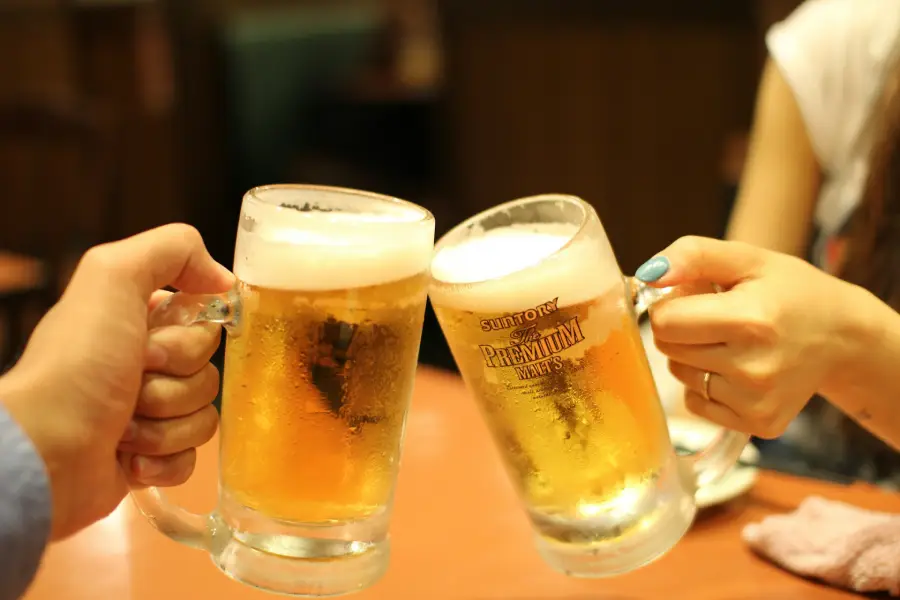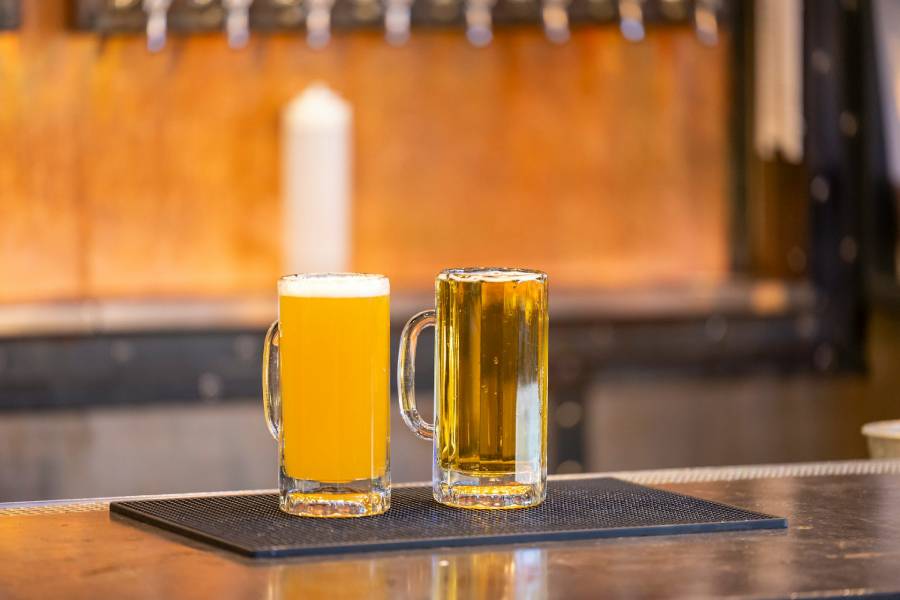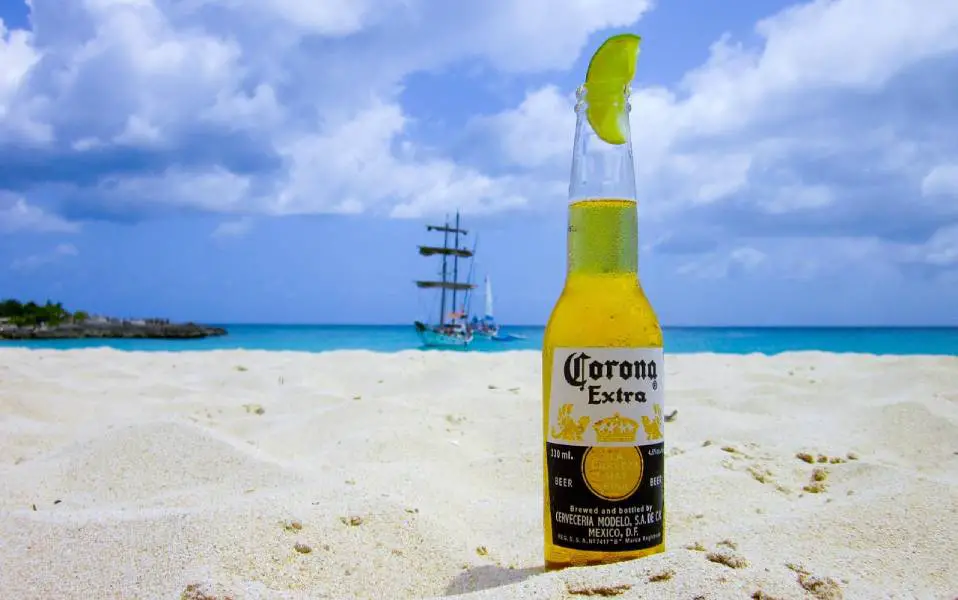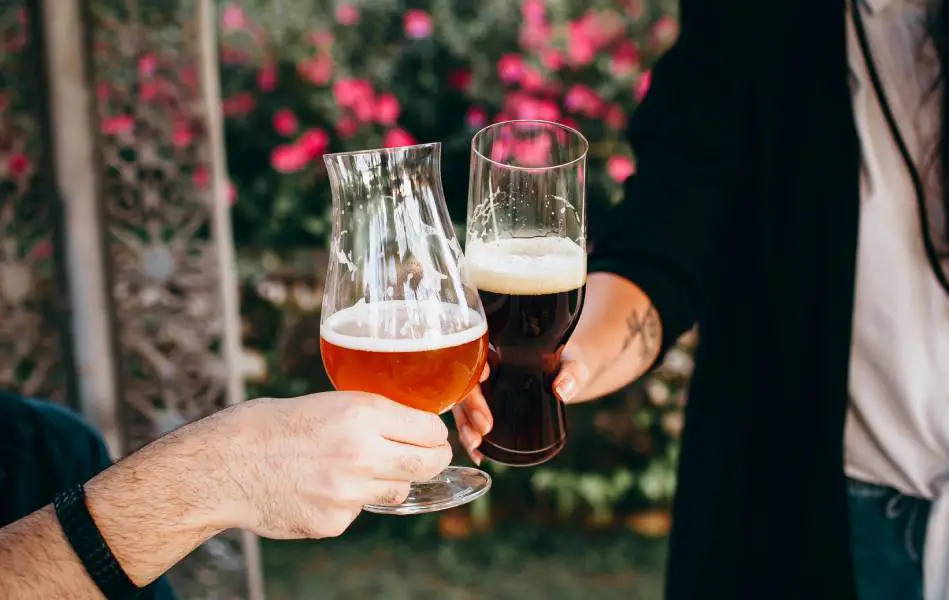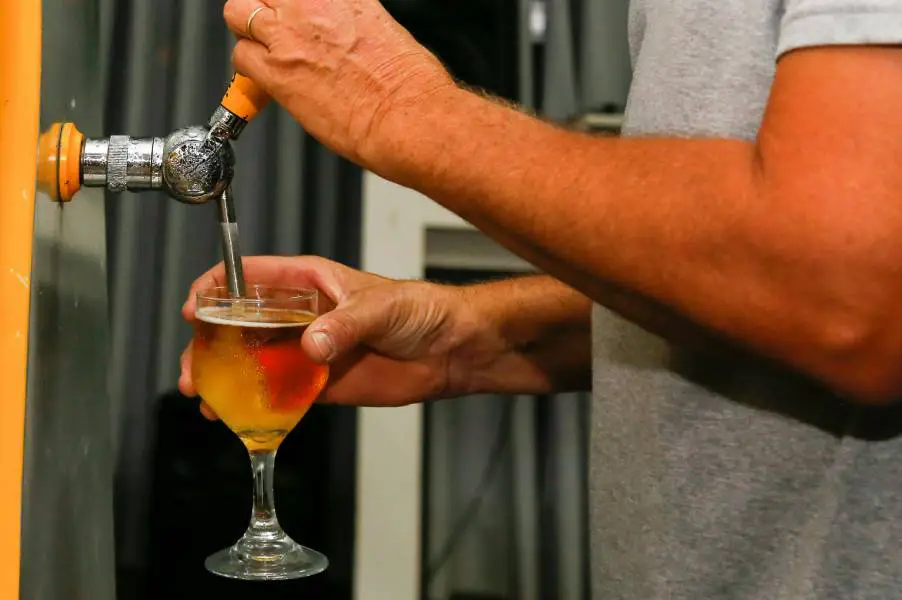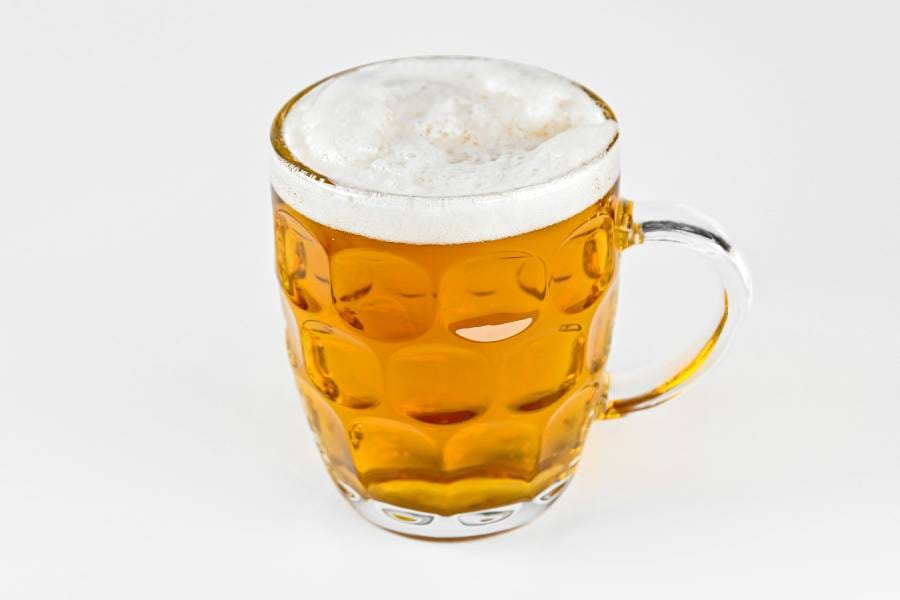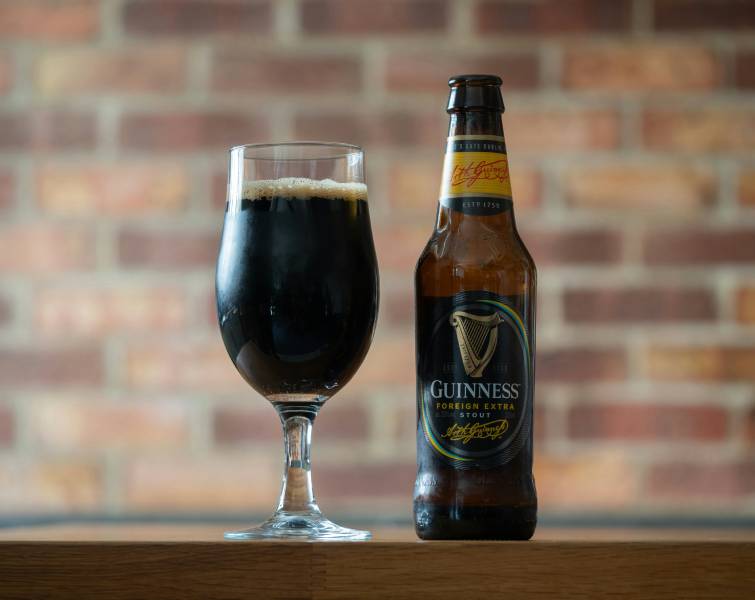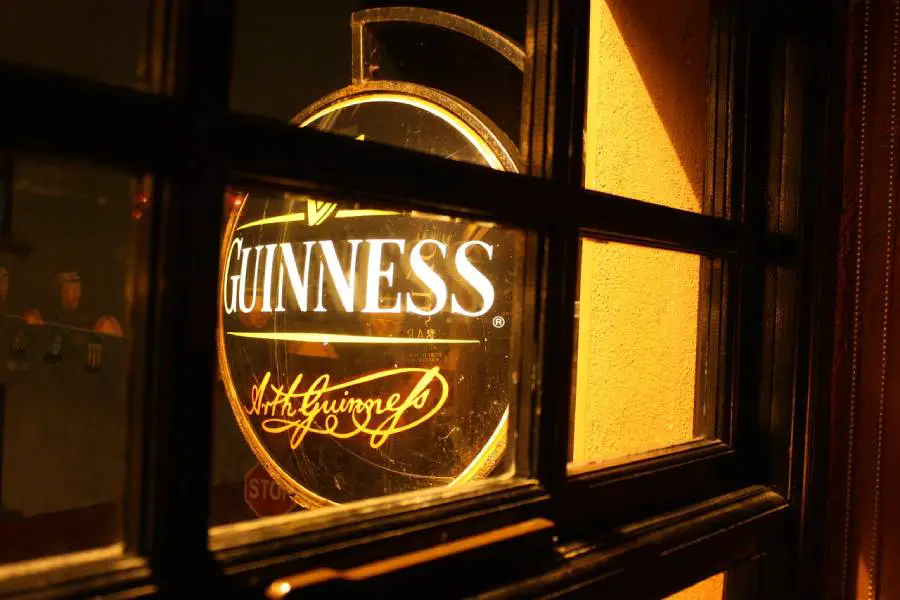Ginger beer has become a popular drink choice, from cocktails to wellness routines. With its bold flavor and unique ingredients, many wonder: is ginger beer good for you? Understanding the health benefits and potential downsides can help you decide if this fizzy drink fits into your lifestyle.
Is Ginger Beer Good for You?
Yes, ginger beer can be good for you, since it has health benefits. The beer contains ginger, known for reducing inflammation, promoting digestion, relieving nausea, and even helping in cancer prevention. Compared to ginger ale, it usually has a more intense flavor and offers more health benefits due to its higher ginger content.
Ginger beer is a less-sweet alternative to ginger ale. However, the sugar content in some varieties can be high, so it’s important to check labels to see if you’re watching your intake. In terms of calories, A 12 oz serving can range between 120 and 200 calories, depending on the brand.
While the beer offers health benefits, it also has downsides. Its high sugar content can contribute to weight gain and dental issues if consumed in excess. Additionally, some varieties are acidic, which may aggravate acid reflux or harm tooth enamel over time.
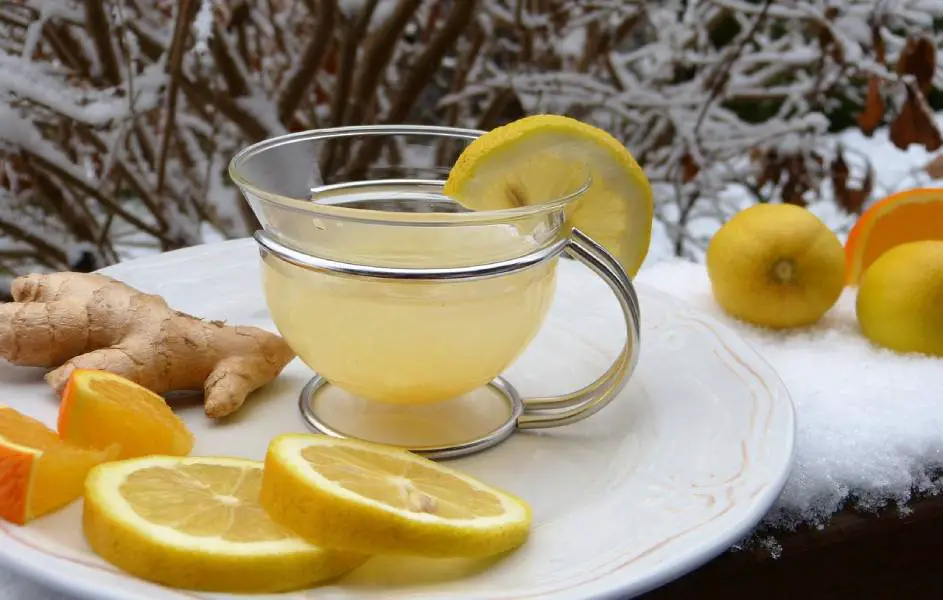
Nutritional Breakdown of Ginger Beer
The beer varies in nutritional content depending on the brand. However, most versions share similar ingredients and calorie counts. Here’s a breakdown of the key nutritional components:
- Calories: A 12 oz serving typically contains between 120–200 calories, depending on the brand and sugar content.
- Sugar: Commercial ginger beers often contain 30–50 grams of sugar per serving, which contributes to their sweetness.
- Carbohydrates: Most servings provide 30–45 grams of carbohydrates, primarily from sugar.
- Fat: Ginger beer is generally fat-free, making it a low-fat beverage choice.
- Ginger Content: While ginger provides health benefits, the actual ginger content in many brands is often minimal.
- Alcohol: Non-alcoholic varieties are common, but alcoholic versions contain around 4–11% alcohol by volume.
Health Benefits of Ginger Beer
Ginger beer offers several health benefits thanks to its key ingredient, ginger, which has been valued for its medicinal properties. Here are some notable benefits:
- Reduces Inflammation: Ginger’s anti-inflammatory properties help reduce joint pain and swelling.
- Promotes Digestion: Ginger stimulates digestive enzymes, aiding in better digestion and nutrient absorption.
- Relieves Nausea: Ginger effectively reduces nausea caused by motion sickness, pregnancy, or chemotherapy.
- Improves Circulation: Ginger helps improve blood circulation, which supports heart health and overall wellness.
- May Prevent Cancer: Some studies suggest ginger has cancer-fighting properties, potentially reducing the risk of certain cancers.
- Fights Infections: Ginger has antimicrobial properties that help the body fight infections and harmful bacteria.
- Soothes Sore Throat: Ginger can relieve throat irritation, making ginger beer helpful during colds and flu.
Ginger Beer vs Ginger Ale
Ginger beer and ginger ale are often confused, but they differ in flavor and production. Let’s explore their differences to help you make an informed decision.
What is Ginger Beer?
Ginger beer is a naturally carbonated drink known for its bold ginger flavor. It is typically made using fresh ginger root, yeast, water, sugar, and sometimes lemon juice for added flavor. Some versions contain alcohol, while others are non-alcoholic.
The primary ingredients—ginger and sugar—create its characteristic spiciness and sweetness. Commercial brands may include preservatives and carbonation for a fizzier texture. Despite its name, most modern ginger beer is non-alcoholic.
What Is Ginger Ale?
Ginger ale is a carbonated beverage with a mild ginger flavor. It is made primarily from ginger extract, sugar, and carbonated water. It is typically sweetened with either cane sugar or high-fructose corn syrup. Some variations also include lemon or lime flavoring for added citrus notes.
In brewing ginger ale, whey can be used as a fermentation starter to add probiotics and enhance its natural fizz. Besides ginger and sweeteners, other ingredients may include citric acid and preservatives. Most ginger ale is non-alcoholic, making it a popular mixer or standalone soft drink.
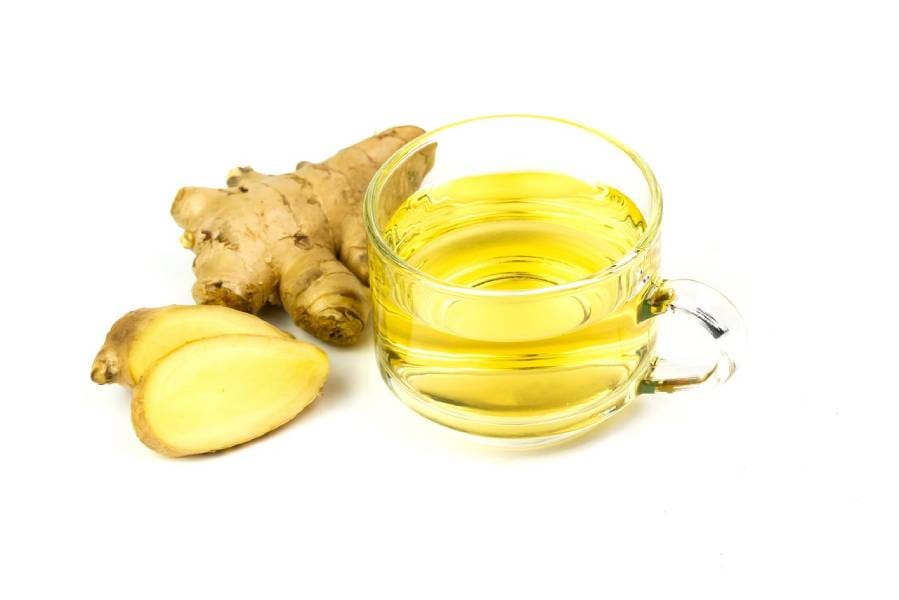
Alcoholic Content of Ginger Beer vs Ginger Ale
Ginger beer contains 0.5% ABV but is technically considered non-alcoholic in most commercial varieties. However, traditional versions can have 4–6% alcohol by volume, similar to light beers. Many people enjoy ginger beer in cocktails, both alcoholic and non-alcoholic.
Ginger ale, on the other hand, is completely non-alcoholic. It’s a carbonated soft drink with a mild ginger flavor, often used as a mixer or consumed alone. This beer is alcohol-free because whey used in fermenting ginger ale has very low amounts of alcohol after fermentation.
To make an alcoholic ginger ale with whey, you will need to add a special strain of yeast and certain enzymes during fermentation. Without the two, you will only have an alcohol-free ginger ale.
How to Make Ginger Beer at Home
Homemade ginger beer is easy to make and offers a refreshing, zesty flavor that you can customize to your taste. You can enjoy a delicious, fizzy drink with a few simple ingredients. Follow these steps to make this type of beer:
Ginger Beer Ingredients
- 1/4 cup ginger bug starter
- 4 tablespoons of fresh ginger, grated
- 6 tablespoons of sugar (raw sugar)
- 4 cups of water (Chlorine-free)
- 2 tablespoons lemon juice
- 1/4 teaspoon sea salt
- Optional: 1/4 teaspoon ground cinnamon or cloves for added spice
Instructions
- Mix all the ingredients in one jar and stir until the sugar is completely dissolved.
- Cover the jar with a cloth or paper towel and secure it with a rubber band.
- Let the mixture ferment in a warm and dark room for 3-5 days, stirring once daily.
- Check for bubbles forming at the top, indicating fermentation.
- Strain the liquid into bottles, leaving some space at the top for carbonation.
- Seal the bottles tightly and leave them at room temperature for 1-2 days to carbonate.
- Refrigerate the bottles to stop fermentation and enjoy your homemade ginger beer chilled.
When to Drink Ginger Beer
The best time to drink ginger beer is when you need a refreshing and zesty beverage on a warm afternoon. Its natural spice and carbonation make it perfect for cooling down and quenching your thirst. The beer also pairs well with light foods. For instance, you can pair it with salads or grilled seafood to enhance the flavors.
The beer is an excellent choice for social gatherings, barbecues, and picnics. It adds a unique twist to cocktails or mocktails and can also be enjoyed as a digestive aid after a hearty dinner in the evening. With its versatility, this beer fits well into various occasions, making it a favorite all year round.
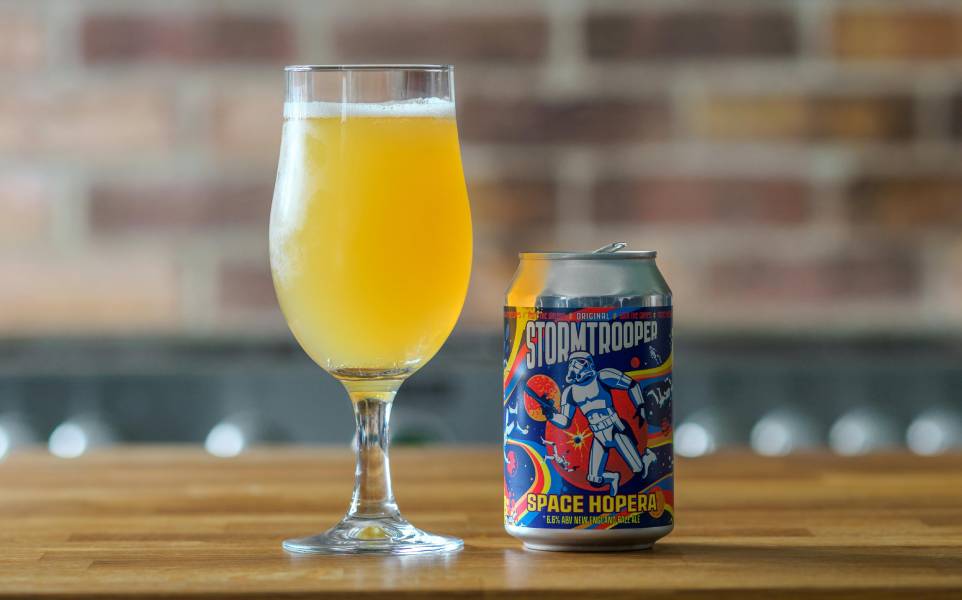
Frequently Asked Questions
What Is the Main Difference Between Ginger Beer and Ginger Ale?
The main difference between ginger beer and ginger ale is that ginger beer is brewed and fermented, giving it a stronger, spicier flavor with natural carbonation. Ginger ale is a non-alcoholic drink made using artificial carbonation and tends to be sweeter. Ginger beer is often less sweet and more robust.
Is Ginger Beer Healthier Than Soda?
Ginger beer is healthier than soda because it often contains real ginger, which has anti-inflammatory and digestive benefits. It typically has fewer artificial ingredients and less sugar than many sodas. However, the health benefits depend on the specific brand and recipe, so it’s important to check the ingredients.
Can Kids Drink Ginger Ale?
Kids can drink ginger ale in moderation, as it is a non-alcoholic, carbonated soft drink. It can be soothing for an upset stomach due to its mild ginger content. However, it contains sugar and artificial ingredients, so it’s best to offer it occasionally rather than regularly.
Conclusion
Ginger beer can be good for you when made with real ginger, offering potential benefits like improved digestion and reduced inflammation. It is often lower in sugar than many sodas, making it a better choice for a refreshing drink. However, moderation is key due to its sugar and calorie content.

